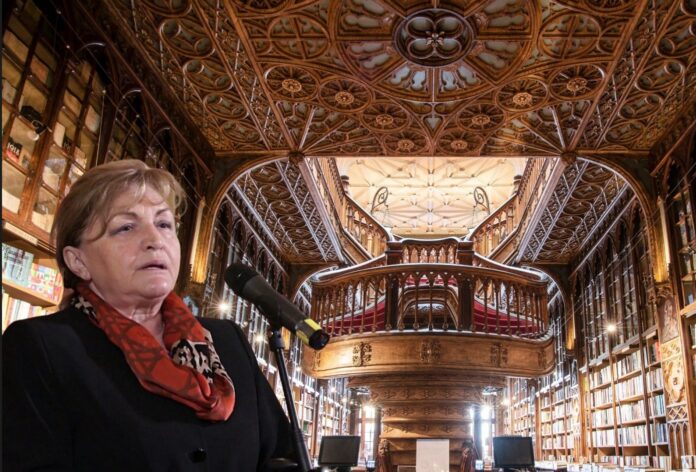ICAI a fost constituit în temeiul prevederilor Legii nr. 31/2007 privind reorganizarea și funcționarea Academiei Oamenilor de Știință din România, HG nr.641/2007 pentru aprobarea Statutului Academiei Oamenilor de Știință din România şi Hotărârii Adunării Generale a Academiei Oamenilor de Știință din România din 18.12.2017.
Conform art.7 alin.c din OG nr.57/2002 privind cercetarea științifică și dezvoltarea tehnologică Institutului de Cercetări Avansate Interdisciplinare „Constantin Angelescu” este instituție de drept public, cu personalitate juridică, parte a sistemului național de cercetare dezvoltare, în subordinea Academiei Oamenilor de Știință din România.
ICAI are drept scop dezvoltarea științelor fundamentale și aplicate prin cercetări inter-trans și multidisciplinare, prin producere și transfer de cunoaștere științifică la nivel academic.
ICAI are drept obiective reprezentarea la nivel național a unor domenii de activitate științifică, afilierea la uniunile științifice internaționale și coordonarea unor programe științifice internaționale.
- Mai multe detalii despre ICAI la www.icai.ro
ACTIVITY REPORT 2021
PPT-Raport-ICAI-2021-5MAI2022The crisis of classical reading versus the crisis of digital reading
It is already known that EUROSTAT statistics from recent years show that 90% of Romanians do not read even one book a year. The reality in question is known by those involved in education, and the press reflects this fact. In the 2019 Education Tribune it was written “The crisis of reading in school, a problem of education that should not be ignored”, and in 2021 in an article entitled “The crisis of reading” the author asks “Why not read” and “Why we have so much by many functionally illiterate ”. The Education Review – EDICT of August 2018 states that “We are at a point where the reading crisis has taken over most people.”
UNESCO was talking about the reading crisis of 25 years ago. The COVID pandemic deepened this crisis, which merged with the education crisis. On January 22, 2022, on the occasion of the International Day of Education, Antonio Guterres, Secretary General of the United Nations, said that in the last 2 years, due to the COVID-19 pandemic, more than 31 million young people have been affected by school closures, which means , in fact, a global crisis of education (“a global learning crisis”).
In 1990, at the Faculty of Letters, in the department of Library Science and Information Science, just re-established, Gabriel Ștrempel, then the director of the Academy Library, who taught about the old Romanian Bibliography, told me, who taught Computer Science (Library Automation), very convinced that no matter how much digital information develops, the pleasure of browsing a book cannot be replaced by any computer. I did not dare to contradict him, but I was skeptical and told him that perhaps future generations would not think the same. Professor Ion Stoica, also present, tended to agree with me. Today’s reality shows that this is so! Today’s young people (and not only) prefer information in digital form! If digital information has won, I believe that digital libraries and e-books should be the counterweight to the classic reading crisis.
I remembered that in the Hall of the Carol l Central University Library in Bucharest (BCU), in April 2016, at the Conference “Education and Culture in the Digital Age” , organized by the National Institute for Research and Development in Informatics, professionals in the field have launched a manifesto for the national project for the construction of a National Digital Libraries , as have all the culturally evolved countries – USA, England, France, Germany, Russia, Japan, South Korea, etc. Then there were directors of large county libraries, representatives of the Ministry of Communications and Information Technology, but also foreign experts, including delegates from the National Information Agency in South Korea, who also funded a pilot project for BCU. Mobile Communications magazine reflected the event in the May 2016 edition with pertinent comments on the debated ones.

Since then, over the next five years, many projects on digitizing documents and creating digital collections have been funded, but we cannot say that we have a national digital library in the true sense of the concept.
The events related to the National Reading Day made me reflect on what Gabriel Ştrempel said and I understood that there are other people who think the same, after 25 years, and this feeling of the joy of reading must be transmitted and reconstructed by any means. , including the declaration of a National Reading Days .
It is true that digital reading does not allow you to browse pages written on paper, but you can have other advantages, you can also browse a book in a foreign language and a dictionary, an art album and a bibliography of the author of a painting on which you see it on your computer or tablet. The joy of reading can be the same, and young people can be closer to what they like, digital technology !! I think that we could include digital reading as part, in another form, of reading that can generate the joy of reading!
I know many library directors and absolutely all of them confirmed to me that they organized events on reading day to revive reading! It’s great, but it’s a continuous process, the taste and education for reading is not done in a day! The attraction for reading is the same, whether it’s on a classic or digital medium. And, as they say, education starts in the library, be it digital. The coherent construction of the digital library, with digital books, with free access but well managed, with easy to read and navigate document systems, with the involvement of content providers but also of decision makers can be a solution for the reading crisis and “Learning crisis” , especially in the face of unpredictable unwanted events, such as the COVID-19 pandemic.


